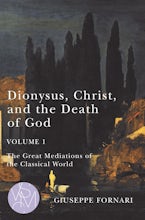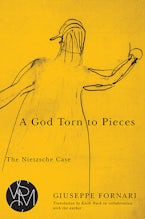This magisterial reflection on the history and destiny of the West compares Greco-Roman civilization and the Judeo-Christian tradition in order to understand what both unites and divides them. Mediation, understood as a collective, symbolic experience, gives society unity and meaning, putting human beings in contact with a universal object known as the world or reality. But unity has a price: the very force that enables peaceful coexistence also makes us prone to conflict. As a result, in order to find a common point of convergence—of at-one-ment—someone must be sacrificed. Sacrifice, then, is the historical pillar of mediation. It was endorsed in a cosmic-religious sense in antiquity and rejected for ethical reasons in modernity, where the Judeo-Christian tradition plays an intermediate role in condemning sacrificial violence as such, while accepting sacrifice as a voluntary act offered to save other human beings. Today, as we face the collapse of all shared mediations, this intermediating solution offers a way out of our moral and cultural plight.
ContentsPreface: The Black Sun of EuropeGnosiological Introduction: A Disregarded Philosophical TraditionMystery Cults and Tragedy1. The Labyrinth of Mythology2. Orphism and the Eleusinian Mysteries3. In the Heart of the Labyrinth: Euripides’s Cretans and Its Philosophical Meaning4. Sacrificial and Erotic Metamorphoses in the Bacchae5. The Hieros Gamos of Wet and Dry6. Sapiential Reflections in the Bacchae7. The Power and Failure of Divine Mediation8. The Birth of Tragedy, the End of Classical GreeceIntermezzo: The Toys of Dionysus; Comparison of Civilizations in the Hellenistic and Roman Periods9. Judaism and Christianity in the Greco-Roman World10. The Comparative Question between Judaism and ChristianityNotesBibliographyIndex



